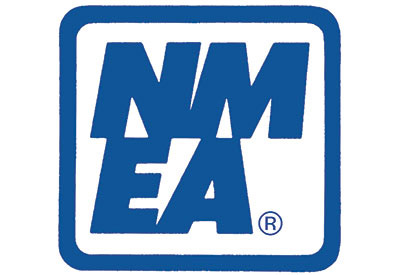NMEA LAUNCHES NEW NMET CERTIFICATION: NATIONAL MARINE ELECTRONICS TECHNICIAN

Jan 29, 2019
On Feb. 1, the National Marine Electronics Association (NMEA) will launch a new technician certification-National Marine Electronics Technician, or NMET. The designation is similar to Certified Marine Electronics Technician (CMET) but without the Federal Communications Commission (FCC) requirements.
NMEA Board of Directors Chairman Mike Spyros explained that the purpose of the NMET program is to provide a “stepping stone” towards the existing CMET certification. The NMET exam is identical to the CMET exam and has the same “experiential knowledge” questions related to installing, troubleshooting, and repairing marine electronics. CMET and NMET test questions are drawn from the same test pool questions.
The only difference between NMET and CMET is that the NMET certification will not include the CMET prerequisite requirement that students pass three FCC tests-Elements 1 (Marine Radio Operator Permit), 3 (General Radio Operators License-GROL) and 8 (Ship Radar Endorsement). NMET does not replace (and is not equivalent to) a CMET because a CMET has achieved a higher standard of expertise. Unlike NMETs, CMETs are legally allowed to repair VHF, SSB, and marine radar transmitters. CMETs can also perform FCC Ship Radio Safety Inspections required by the U.S. Coast Guard.
The NMET exam is a proctored 150 question test with a two-hour time limit, and a requirement that the applicant correctly answer 80% of the questions. The test can be taken at any local library, test center, the NMEA office or the NMEA Conference. Proctored testing arrangements must be scheduled by the test taker a minimum of two weeks in advance. Prerequisites require the test taker to have a current AMEI certificate and an Advanced NMEA 2000® certificate at the time of the exam.
There are no direct study materials associated with the NMET exam at this time. Experiential knowledge of troubleshooting and installing complex marine electronics systems is the basis of the exam. The CMET/NMET exam question pool, now nearly 500 in all, has been expanded and modernized by subject matter experts in the areas of radar, sat comm, sat TV, autopilots, AIS, displays, computers, heading devices, ethernet, Wi-Fi, VHF, DSC, SSB and NMEA data. Passing the NMET certification will provide two points toward NMEA Master Dealer status. NMEA Master Dealers, however, will still be required to have a CMET on staff.
The NMET/CMET is a closed book test and a standard calculator is allowed. There is one retake allowed within 60 days (included in exam price) and the proctor rules above apply. If a test taker fails the retake, the next available date to take the exam is 12 months from the date of the first test, in which case the standard exam price applies again.
Pricing for the NMET/CMET exam is $100 for NMEA members and $300 for non-members. NMEA can also administer FCC exams for both groups at $50 for the first two elements, and $75 for all three elements. Both the CMET exam and FCC exams must be proctored at the NMEA National Office or your local library.
For more information, visit the NMEA website at www.NMEA.org or call (410) 975-9425.



























